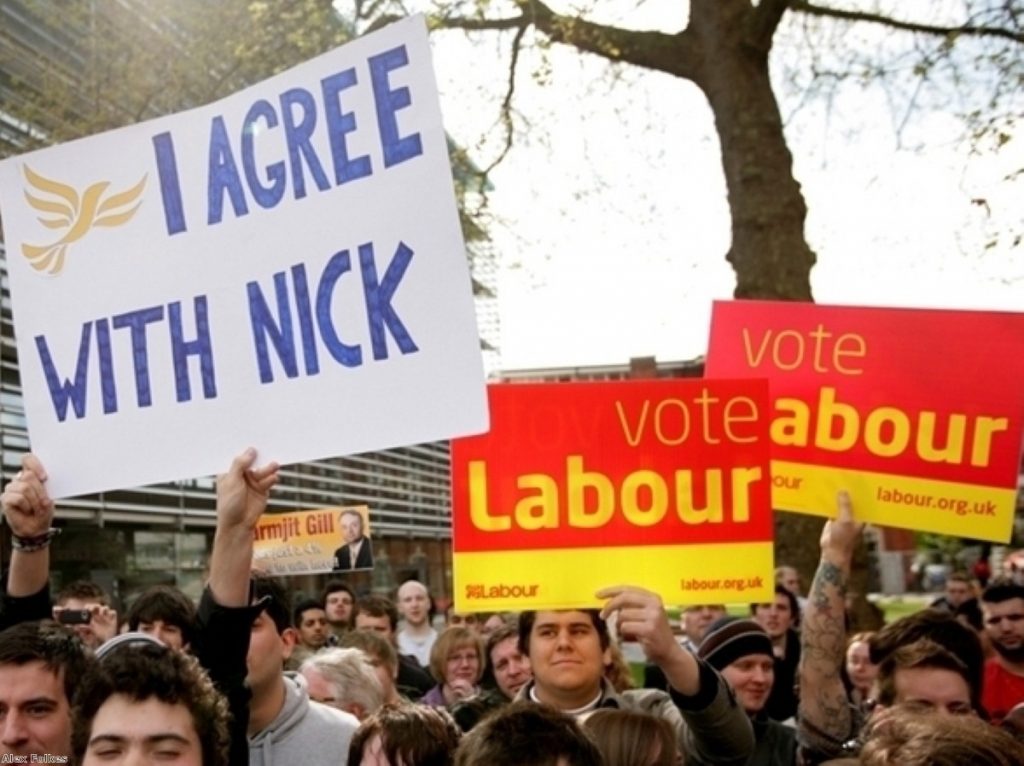Labour fumes over AV referendum
By Ian Dunt
Labour desperately tried to adopt a coherent strategy towards the impending AV referendum today, as senior figures in the party seethed with anger over the proposals.
Nick Clegg set the date for the referendum for May 5th 2011 in a statement to the Commons yesterday, but Labour officials complained that the policy had been linked with efforts to equalise the size of constituencies – a tactic labelled “gerrymandering” by Ed Balls, Jack Straw and John Prescott.
Today Mr Prescott went one step further, by demanding Labour voters vote against the introduction of AV and treat the referendum as a vote on the coalition government.


“On the very day plans for more than 700 new state schools were axed, Clegg championed AV, a form of voting he once described as a ‘miserable little compromise’,” the former deputy prime minister wrote on his blog.
“And on this occasion, I agree with Nick. That’s exactly what it is – cover for the biggest gerrymandering of seats that I have ever seen in my 40 years in politics.
“This is a poisonous package and Labour must fight against every single part of it.
“So let’s make the May elections for the Scottish parliament, Welsh Assembly and local councils a proper referendum on this ConDem government and a set of savage and brutal policies that no-one would have voted for at the last general election.”
Labour appears to have been thrown into turmoil by the announcement, which mixed policies they campaigned on at the election with a more radical attempt to reduce the number of MPs in the Commons, equalise constituency sizes, get rules on ‘no confidence’ motions on the statute book and introduce an ability for parliament to dissolve parliament.
The coalition backed down on its original plan for a 55% bar for the dissolution threshold, announcing instead that two-thirds of MPs will be required to trigger a general election, a move Mr Straw branded “the first major U-turn of this government”.
Labour were not the only protestors about the voting reform package. Plaid Cymru claimed Wales would lose up to ten Westminster parliamentary seats under the plans, which envisage there being 600, rather than 650, seats, all with about 75,000 electors.
With a voting population of around 2.26 million, Wales will have 30 seats under this new ruling, Plaid Cymru officials said.
“Although the total number of seats cut will be less than eight per cent of the total, Wales will be losing a quarter of its seats while England loses just five per cent,” Plaid’s parliamentary leader Elfyn Llwyd said.
“This is not a respect agenda that this Tory-Lib Dem coalition have for Wales, it is a contempt agenda.”
Public support for the coalition’s programme appears to be holding firm, although some data suggests people would like a greater range of options during the referendum.
A PoliticsHome poll found 46% of people favoured a more comprehensive range of options than a simple AV/status quo split.
But asked how they would vote if this referendum were to be held tomorrow, 48% said they would back AV, compared to 37% who would vote to keep first past the post.
Lib Dem MPs were jubilant at the news, as concrete liberal results were starting to shine through after a month in which they came under severe pressure for their support for George Osborne’s Budget – and in particular the rise in VAT.
“After 13 years of Labour inaction, Nick Clegg announced a welcome and major series of progressive political reforms,” Lib Dem deputy leader Simon Hughes said.
“The coalition government has decided in one move to give all voters a much greater say in who is chosen to represent them and to give parliament a much greater say in the business of government.”
But there were serious concerns raised outside the Commons about the decision to enshrine the ‘no confidence’ rule in law.
Critics argued that by allowing a 14-day period after the no confidence vote for leaders to try and form a stable government, the legislation raises the distinct possibility of a sitting prime minister trying to buy the votes of opposition parties in the two-week window.









